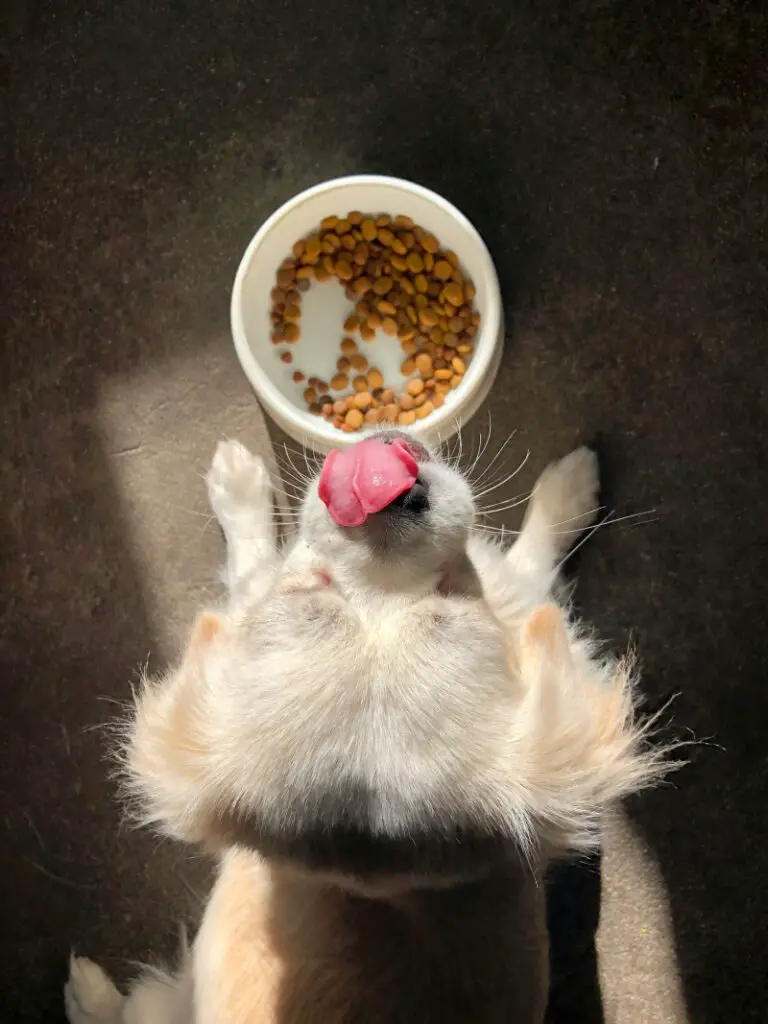Thanks to its exquisite flavor and incredible health benefits, avocado has become a favorite in many cuisines around the world. However, when it comes to avocado and dogs, there is bound to be some confusion. On the one hand, there are sources that advise against giving it to the pet, and on the other, there are dog foods that include it among their ingredients.
This makes many owners wonder “Can dogs eat avocado?” “Is avocado good or bad for dogs?”, “What if my dog ate avocado?”.
Table of Contents
Can dogs eat avocado: yes or no?
Strictly speaking, dogs can eat avocado, but there are considerations and restrictions that you should know about it.
The reason some say dogs shouldn’t eat avocado is its content of the toxin persin. This toxin is known to be potentially dangerous for some animals (birds, horses, rabbits); however, it is harmless to dogs when consumed in small amounts.
The edible part of the fruit, that is, the pulp contains very low concentrations of persin, hence its consumption is considered safe for both dogs and humans.
So can you let your dog eat avocado?
As long as a small portion is administered, without any remains of skin, bone, or leaves, most dogs can eat the pulp of a ripe avocado without being life-threatening. It is noted that the safety of avocado in a canine diet may vary depending on each dog, its diet, and general health status.
Does avocado have benefits for dogs?
When administered properly, avocados provide many of the same health benefits for dogs as they do for their owners. The high content of good fats, fiber, amino acids, essential vitamins, and minerals contributes to better nutrition and supports numerous vital processes.
No wonder avocados are now included among the ingredients of many commercial dog foods and treat.
Here are 5 ways a dog can benefit from eating avocado:
- Better functioning of the gastrointestinal system. The dietary fiber present in avocado helps promote healthier digestion and more regular bowel movements.
- Good skin and coat health. Due to its high content of omega 3 fats and vitamin E, the pulp of the ripe avocado is an excellent food to keep the dog’s skin and coat much brighter, silkier, and healthier.
- Healthy and bright eyes. Likewise, vitamin A, vitamin E, and good fats contribute not only to more beautiful and brighter eyes but also to better visual health.
- Better absorption of nutrients. Another of the essential vitamins in avocado is vitamin C. This, in addition to being an antioxidant and strengthening immunity, improves the dog’s ability to absorb the rest of the nutrients.
- Better cardiovascular health. Being rich in good fats, fiber, antioxidants, B vitamins and minerals such as potassium, moderate intake of avocado helps promote better cardiovascular health.
How to give avocado to a dog? Frequency and amount
In case you want to give your dog avocado, the first thing is to make sure you know how to do it. Here are the 4 basic rules of the experts, which we also recommend from SweetDoggo:
- Only the pulp of the ripe fruit. The dog should never chew or swallow parts of the peel, stem, leaves, or center pit of the avocado, as these contain the highest concentration of persin. If eaten, the pet could experience symptoms of toxicity.
- Always make sure to remove such parts and keep them out of their reach. In addition, it is important that they eat the fruit in its natural form, without added salt or spices.
- Control the portion size. Dogs should not eat more than a small serving of avocado per day; 2-3 thin slices are enough to include the fruit in a meal. This amount should be adjusted depending on the breed in question. It is not the same to give avocado to a large or giant breed dog, as to a medium or small dog.
- Better occasionally than regularly. Due to its high-fat content, avocado should not be a frequent, let alone daily, food in the average canine diet.
Consult the veterinarian or nutritionist. Consulting a veterinarian before giving your dog avocado is always a good recommendation, but this is especially advisable in case the pet suffers from any health condition, or is still a puppy.
Recommended: What Vegetables Can Dogs Eat? Which ones are prohibited?
Easy recipe: meat, avocado, and cheese croquettes for dogs
Ingredients
- 1 ½ cups lean ground beef
- ¼ cup grated cheese (low fat)
- ½ small ripe avocado (without skin or seed)
- 1 cup whole-grain oatmeal
- 1 egg
- 2/3 cup of water
Instructions
- Preheat the oven to 350°F (180°C).
- Place all ingredients in a food processor and process until smooth and sticky.
- With the help of a spoon, take moderate portions of the dough and shape them into croquettes.
- Transfer them to a baking sheet, making sure to leave space between them.
- Bake the croquettes for 15 minutes or until they are golden on the outside. Remove them from the oven and let them cool. Once they are completely cool, store them in an airtight container and put them in the fridge.
Contraindications and side effects of avocado in dogs
Although it is unlikely that a dog’s life would be endangered by occasional and moderate consumption of avocado, there are several contraindications, risks, and adverse effects to be aware of.
Overweight. The pulp of ripe avocados is very rich in fat, so long-term inadequate intake can lead to nutritional imbalance and overweight. Small dogs and those that don’t get enough daily exercise to face a higher risk.
Pancreatitis. It is known that some sensitive dogs can develop pancreatitis after eating avocado, even if it has only been a small amount. This condition, characterized by inflammation of the pancreas, can be fatal. As a general rule, avocado is contraindicated (forbidden) in dogs that have already been diagnosed with the disease.
Gastrointestinal irritation. Too large portions of avocado pulp could provide higher levels of persin than a dog can tolerate, hence stomach symptoms such as vomiting, diarrhea, and abdominal discomfort.
Persin poisoning. As we have mentioned throughout the article, avocados contain persin, a fungal toxin that can cause serious health problems, and even death, in many animals. Although this toxin is present in all parts of the plant, the highest concentration is found in the leaves, skin, and stones of the fruit.
As explained, dogs are more resistant to persin than other animals, but that does not mean they are out of danger. In the event of eating any of these parts high in persin, the pet may experience symptoms of toxicity, including vomiting, diarrhea, and myocardial damage.
It is not yet known exactly how much persin can be lethal.
Gastrointestinal obstruction. The pit or seed of the avocado is not only dangerous due to its toxic content, but also because it poses a high risk of gastrointestinal blockage. Its size and density mean that the dog cannot digest it, getting stuck in the intestines without being able to pass.
The only treatment available in these cases is to remove the bone surgically.
Allergy. It is not common, but as with other fruits and vegetables, it can be the case that a dog is allergic to avocado. It is recommended to always start with a small amount and monitor your pet closely for signs of allergy.
Quick Answers to Frequently Asked Questions
Can dogs eat guacamole?
In general, guacamole is not good for dogs, not only because it is more difficult to control the amount of avocado ingested, but also because it often contains salt, onion, garlic powder, and other ingredients not suitable for canine consumption. Specifically, garlic and onions can put a pet at risk of poisoning.
It may interest you: 9 Potential Poisons for Dogs – What Can Poison My Dog?
What happens if my dog eats avocado oil?
Although ingestion of a significant amount can have adverse effects due to the high-fat content, the truth is that avocado oil does not contain persin and is not considered toxic to dogs. Eating food that contains avocado oil is not dangerous for them.
Are commercial avocado dog foods safe?
Yes. Currently, many dogs and cat food brands are including avocado oil and flour (dried and ground avocado pulp) as healthy ingredients in their products. As they do not contain a persin toxin, these foods are completely safe.
What part of avocados is most dangerous for my dog?
It is said that the most dangerous part of the avocado is its seed or pit. In addition to having high concentrations of persin toxin and being more likely to cause poisoning symptoms, the bone poses a high risk of choking and intestinal obstruction in dogs.



